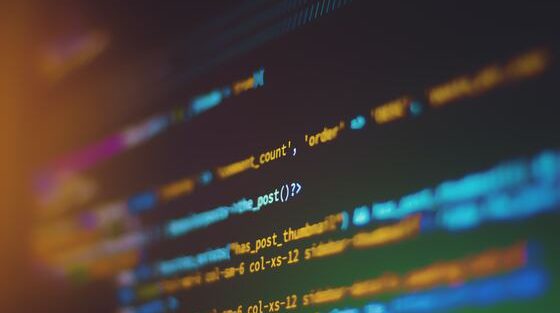Welcome to the era where artificial intelligence is revolutionizing talent retention strategies! In today’s competitive business landscape, holding onto top performers has become a critical priority for organizations looking to thrive. AI is not just a buzzword anymore; it’s a game-changer when it comes to predicting and preventing turnover. Let’s delve into how AI is transforming the way companies approach employee retention.
The Importance of Talent Retention for Companies
Talent retention is crucial for companies striving to maintain a competitive edge in today’s dynamic business landscape. Losing top talent can disrupt productivity, hinder innovation, and incur significant costs associated with recruitment and onboarding.
When employees feel valued and engaged, they are more likely to stay committed to their roles, leading to increased job satisfaction and higher levels of performance. Retaining key personnel also fosters a positive company culture where loyalty and expertise flourish.
Long-term employees bring institutional knowledge that is invaluable for continuity and growth within an organization. Their experience helps mentor new hires, drive strategic initiatives, and uphold the values that define the company’s identity.
Talent retention isn’t just about keeping people; it’s about preserving organizational stability while nurturing a workforce capable of driving success in the long run.
Challenges in Retaining Top Talent
Retaining top talent in today’s competitive job market poses a significant challenge for companies across industries. One of the key obstacles faced by organizations is the increasing demand for skilled professionals, making it harder to retain top performers. Employees are constantly seeking new opportunities for career growth and development, leading to higher turnover rates.
Maintaining employee engagement and satisfaction can be difficult as individual needs and preferences vary greatly. Companies must continuously adapt their retention strategies to meet the evolving expectations of their workforce. Moreover, ineffective communication between management and employees can result in misunderstandings and disengagement, ultimately impacting retention efforts.
External factors such as market trends and economic conditions play a role in influencing employee turnover. Companies must navigate these challenges while also addressing internal issues like workplace culture and leadership dynamics. Successfully retaining top talent requires a multifaceted approach that considers various factors contributing to employee satisfaction and loyalty.
How AI can Predict and Prevent Turnover
Imagine having the power to predict when an employee is about to leave your company before it even happens.
Artificial Intelligence (AI) makes this a reality by analyzing data patterns and identifying potential turnover risks.
By examining factors like job satisfaction, performance metrics, and engagement levels, AI can provide insights into who may be at risk of leaving.
With this information in hand, companies can take proactive steps to prevent turnover before it occurs.
AI algorithms can also help in creating personalized retention strategies tailored to each individual employee’s needs.
This level of predictive analysis allows organizations to address underlying issues and improve overall employee satisfaction.
Examples of Companies Using AI for Talent Retention
In the fast-paced world of business, companies are turning to AI to revolutionize their talent retention strategies. Tech giants like Google and Amazon have been at the forefront of using artificial intelligence to predict and prevent employee turnover.
Google, for instance, utilizes AI algorithms to analyze various data points such as employee engagement surveys, performance reviews, and even communication patterns within teams. This helps them identify potential flight risks before it’s too late.
Amazon has also implemented AI tools that can forecast which employees are likely to leave based on factors like job satisfaction, tenure, and previous roles within the company. With this information at hand, they can proactively take steps to retain key talent.
Other innovative companies like IBM and Cisco have followed suit by leveraging AI-powered platforms that provide insights into employee behavior and preferences. By harnessing the power of machine learning, these businesses are creating more personalized retention strategies tailored to individual needs.
The use of AI in talent retention is reshaping how organizations approach employee turnover prevention – paving the way for a more proactive and data-driven approach towards retaining top talent.
Embracing AI for Better Employee Retention Strategies
In today’s competitive business landscape, talent retention has become a critical aspect of organizational success. Companies that can retain their top performers gain a significant edge over their competitors. However, this is easier said than done as retaining talent poses various challenges.
AI technology has emerged as a game-changer in predicting and preventing turnover. By leveraging advanced algorithms and data analytics, companies can now identify early warning signs of employee dissatisfaction and take proactive measures to address issues before they escalate.
Several leading organizations have already embraced AI for talent retention with impressive results. From analyzing engagement data to predicting flight risks, AI tools provide valuable insights that enable HR teams to develop more effective strategies for retaining key employees.
By incorporating AI into their employee retention initiatives, companies can create personalized development plans, offer targeted perks and benefits, and foster a positive work environment that promotes loyalty and long-term commitment.
Embracing AI for better employee retention strategies is not just about investing in technology; it’s about investing in your most valuable asset – your people. By harnessing the power of AI to predict and prevent turnover, organizations can cultivate a culture of continuous improvement and drive sustainable growth in the ever-evolving world of work.


